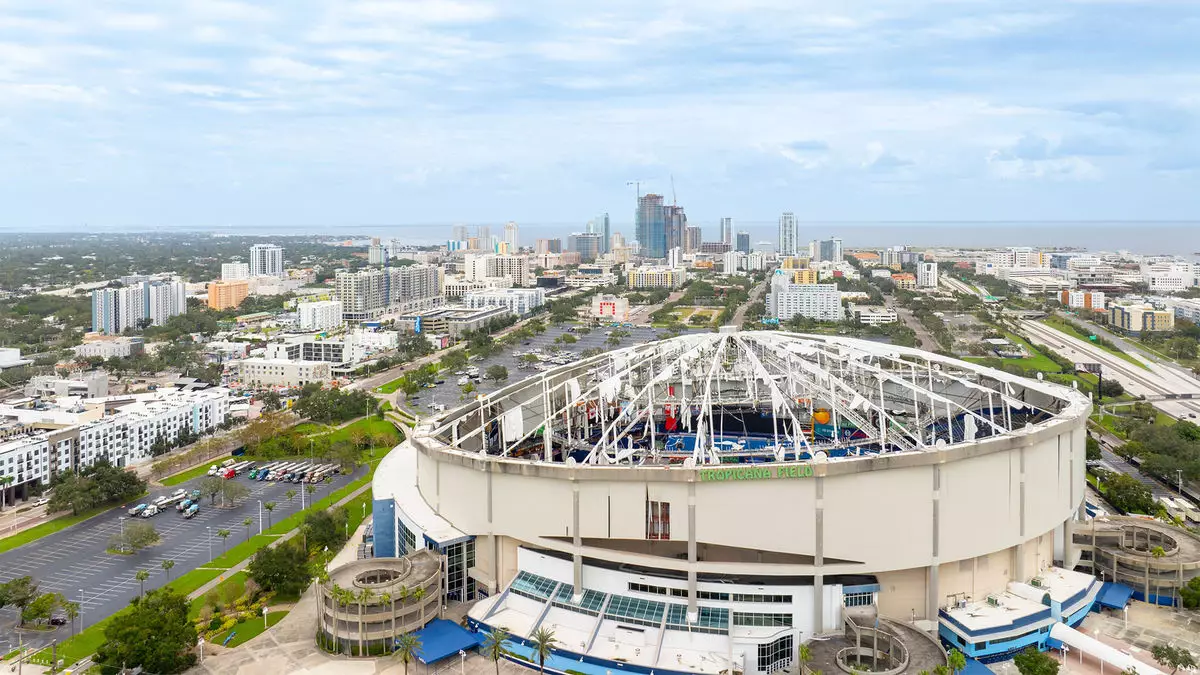The recent devastation caused by Hurricanes Helene and Milton has sparked significant discussions among tourism experts about the future of Florida’s tourism sector. These storms not only inflicted immediate damage but also raised concerns about long-term transformation in the region’s hospitality landscape. It is crucial to delve into how these hurricanes have affected local businesses, employment, and eventually the tourism experience in Florida.
The Gulf Coast is the area expecting the most pronounced repercussions, with small independent hospitality businesses facing the most daunting recovery challenge. With many establishments already struggling to regain their footing, the prospect of long-term changes looms ever larger. Experts like Arthur Huang from the University of Central Florida emphasize that the restoration of attractions and infrastructure will take considerable time, leaving local businesses vulnerable for an extended period.
Hurricane Helene, striking as a Category 4 on September 26, followed by Hurricane Milton, which made landfall as a Category 3 just two weeks later, resulted in a cumulative crisis for coastal communities. Areas such as Sarasota County, specifically St. Armands and Lido Key, are expected to experience profound impacts. Peter Ricci, director of Florida Atlantic University’s Hospitality and Tourism Management program, notes that certain hot spots like Fort Myers Beach may struggle to reopen, given their previous recovery challenges from Hurricane Ian in 2022.
Many small businesses, especially those deeply rooted in their communities, may be forced to exit the market entirely. Ricci highlights this troubling trend, stating that smaller, family-owned operations might opt for insurance payouts instead of rebuilding—quite simply because the costs of modern reconstruction can eclipse their coverage. This trend not only underscores the fragile nature of small businesses but also hints at a potentially irrevocable shift in Florida’s tourism demographic.
One of the starkest predictions is that the wave of closures and transitions among small businesses could escalate Florida’s tourism industry toward a more upscale, premium offering. Well-capitalized developers will likely seize the moment to introduce new, shinier tourism products while rendering traditional family-run establishments obsolete. Ricci foresees that the Gulf Coast may emerge as a more high-end destination, but at a significant cost—both financially for consumers and culturally for the destinations themselves.
As these transformations take place, the concern over rising insurance premiums looms large. Huang warns that all properties, regardless of their category, will experience increased costs, putting extra pressure on small enterprises that already operate on thin margins. Consequently, the existing local flavor and diversity in hospitality could be sacrificed at the altar of modern development and increased regulations.
The disastrous storms also yield challenges that extend far beyond physical recovery. Among the many affected, employees who depend on a steady income from local businesses find themselves in precarious positions as jobs are lost and establishments remain shuttered. Huang stresses the human element involved—those who work in these industries may face months without pay, placing additional strain on local communities already grappling with the storms’ aftermath.
Besides the visible damage, communities must tackle this human impact in their recovery plan. It is not merely about restoring physical spaces; it is equally about ensuring that the workforce is capable of rebuilding as well.
While Central Florida’s major attractions like Tampa and Orlando managed to avoid direct hits from the hurricanes, experts predict they will feel the shockwaves nonetheless. Ricci points to potential cancellations and postponements of meetings and events, which could ripple through the economy for the next several months. The timing of these storms—just before Florida’s lucrative tourism season—exacerbates existing pressures as businesses balance the need for group bookings against maximizing seasonal rates.
The urgency of generating revenue during peak times cannot be overstated, as businesses rely heavily on that income to sustain them through slower months. Ricci’s insights echo the anxiety many in the industry feel as holiday bookings approach, leading to increased competition among properties scrambling to recover lost business.
In the face of adversity, Visit Florida has taken proactive steps to engage and reassure visitors about continuing to explore the state as a destination. The organization has initiated various campaigns—ranging from “Stronger Than the Storm” to “Sun Is Shining In Florida”—to emphasize resilience and draw attention to areas that remain unharmed. The aim is clear: to revitalize interest in tourism to the state by highlighting the operational aspects of certain regions while fostering hope and recovery.
Visit Florida’s initiatives showcase not only a swift response but also an understanding that maintaining visitor interest is essential in the industry’s restoration. As the state navigates these tumultuous waters, fostering unity among its tourism stakeholders remains a critical component of recovery.
The repercussions of Hurricanes Helene and Milton will echo across Florida for years to come, fundamentally altering the state’s tourism landscape. With the potential exit of small businesses, rising costs, and shifts towards higher-end offerings, the future of Florida tourism looks markedly different. How the state adapts to these challenges will ultimately determine its resilience and character as a premier travel destination. The road ahead may be fraught with challenges, but it also presents an opportunity to reshape Florida’s tourism narrative for generations to come.

